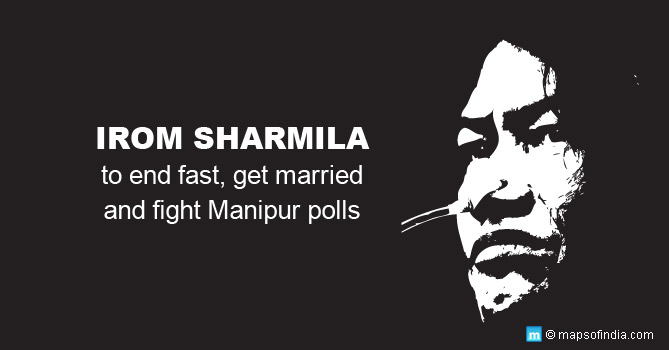Irom Sharmila, the ‘Iron Woman’ of Manipur to end fast. She started her hunger strike in 2000 when paramilitary Assam Rifles shot killed many civilians waiting for a bus in the morning, in the pretext that they were extremists.
‘Iron Woman’ Irom Sharmila To End 16-Year Fast Irom Sharmila Iron Woman of Manipur

